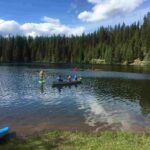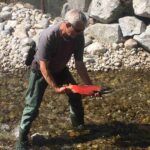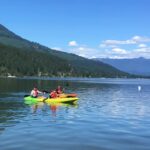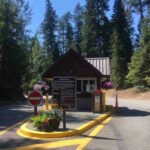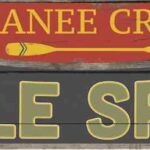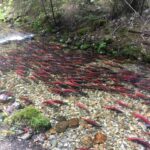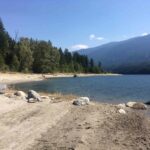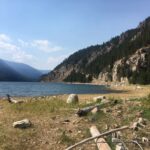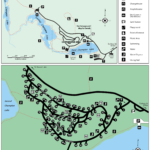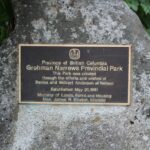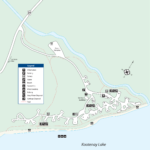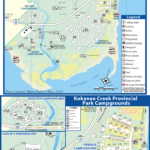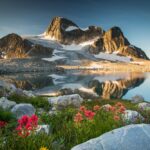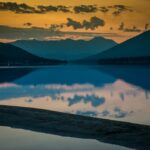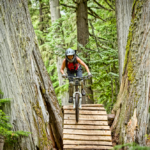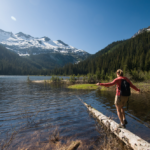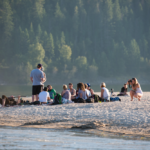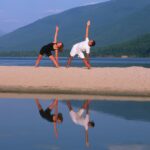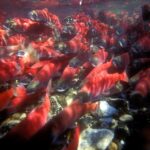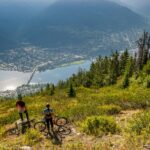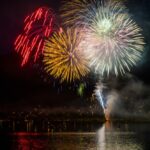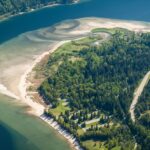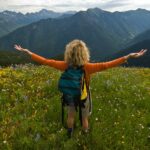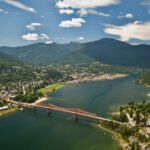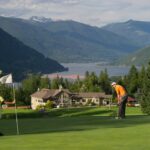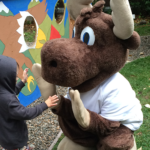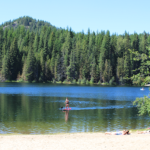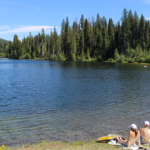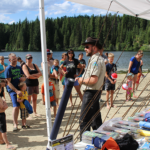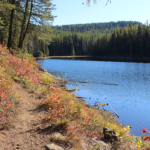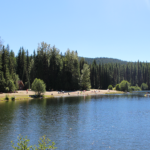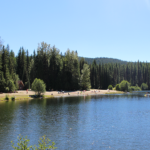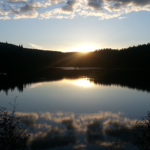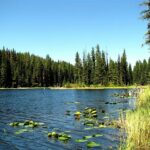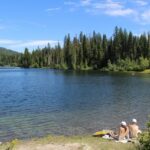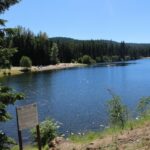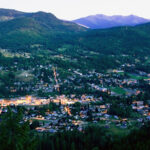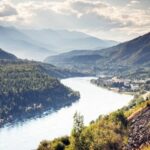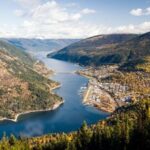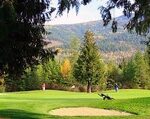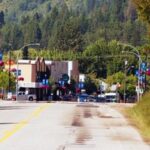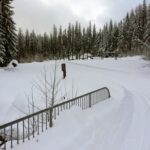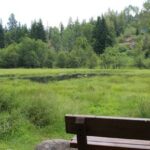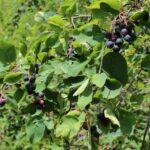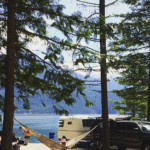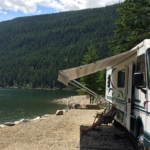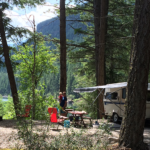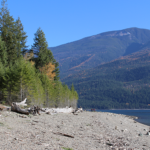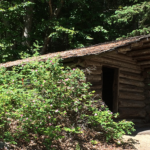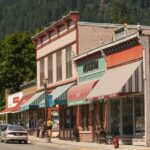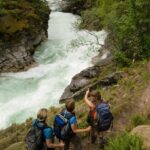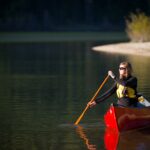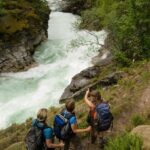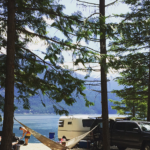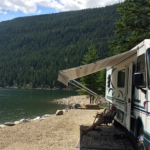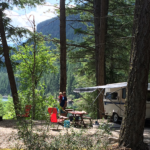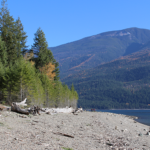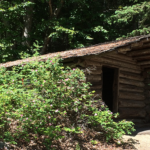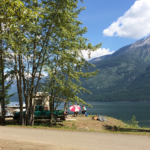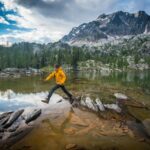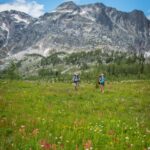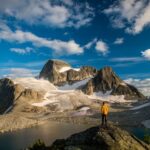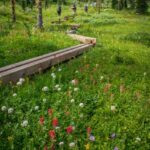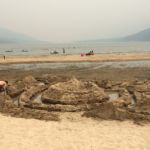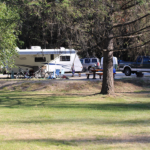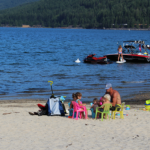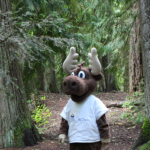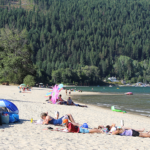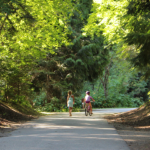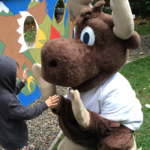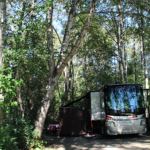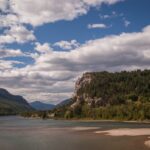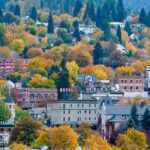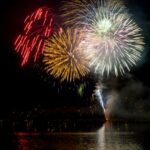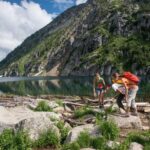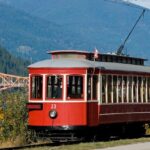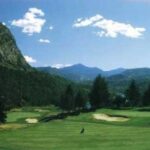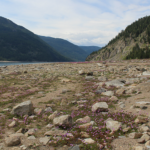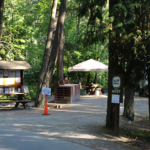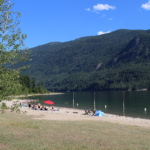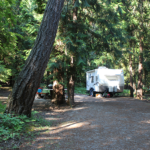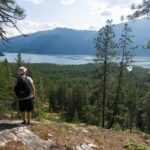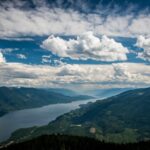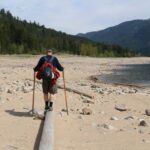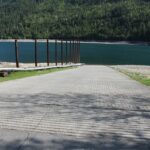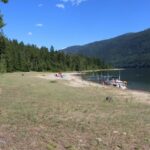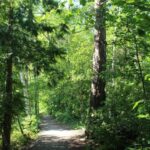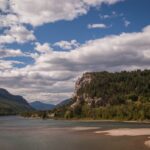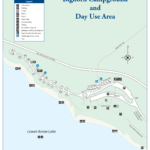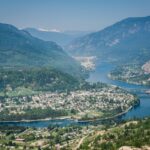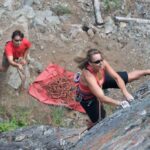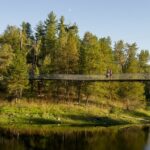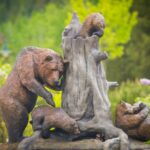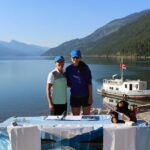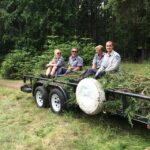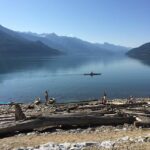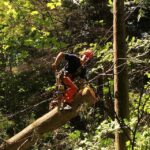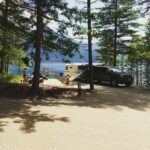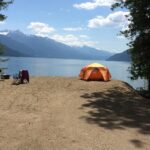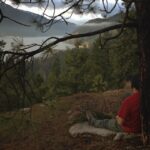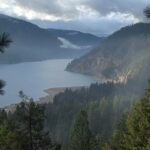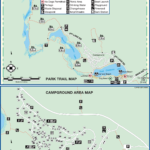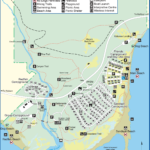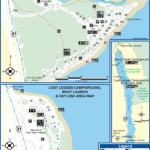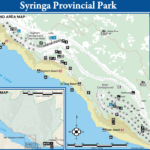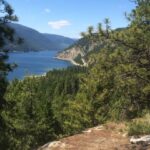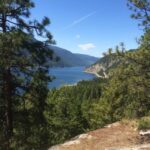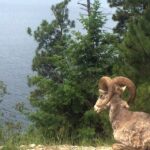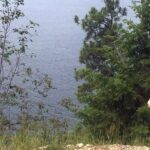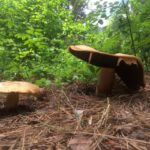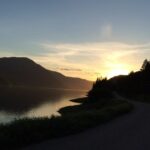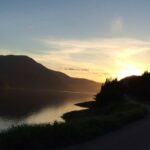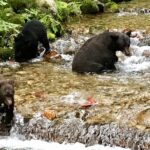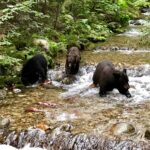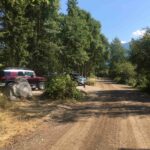Where can I learn more about Bear Safety in the park?
Bears: To avoid potential problems with bears, lock your food in your vehicle at night. Be sure to use the garbage containers provided and maintain a clean campsite. Never feed or approach bears. Check out the complete Wildlife Guidelines put out by BC Parks .
Can I have my dog in the park?
Dogs accompanied by responsible owners are welcome in all Kootenay SW Parks. However, we ask that you help us protect our wildlife habitats by ensuring a safe and pleasant environment for all visitors by adhering to the following Canine Code of Conduct.
1. Please keep your dog under control. Whether walking on the roadways, trails or in your campsite, dogs must be on a leash at all times. Scoop your dogs poop as it is unhygienic and a nuisance for other park users and can cause damage to plant and animal communities. Dog waste should be placed in a tightly sealed bag and deposited into one of the many garbage bins around the park.
2. Respect wildlife and their habitat, the park is their home. Keep your dog off the main beach, out of streams, creeks, ponds, wetlands and shorelines. A variety of wildlife species depend on these areas for breeding and feeding ie. fish, frogs, turtles,salamanders, birds etc.
3.Prevent your dog from digging or damaging to vegetation and habitat.
4.Unruly and noisy dogs cause disturbance to other park users. Please consider that other park users may not be as fond of dogs and that some people can find dogs intimidating.
Backcountry areas are not suitable for dogs or other pets due to wildlife issues and the potential for problems with bears.
Why must dogs be on a leash at all times?
A free roaming dog in the park is often viewed by the owner as harmless but there are good reasons to keep your dog on a leash.
• To wild animals (amphibians, reptiles, mammals, and birds, fish and insects) dogs are potential predators.
• Parks are home to many sensitive and rare plants and animals.
• Repeated and regular disturbance by off-leash dogs will often cause animals to abandon their young and / or habitat.
• Dogs can disrupt feeding, bedding, courtship and rearing of young. In addition to stress, some pursuits may result in injury or death.
• Ground and shrub nesters are very adversely affected by off leash dogs.
• Nesters need to be secretive to minimize the risk of nest location and predation of eggs and young. Regular disruptions will often cause nest site abandonment.
• Off leash dogs create trails or cues used by other dogs, people and predators eg. skunks, raccoons, coyotes, ravens etc. to detect and/or predate hidden nests.
Small mammals
• Small animals such as mice, shrews, squirrels, chipmunks, voles, weasles bats etc. are vulnerable to being chased by off leash dogs and may be injured of killed if captured.
• Dogs dig into burrows and hollows in wood in an attempt to extract animals; they also damage vegetation and habitat.
Reptiles and Amphibians
• Reptiles such as western skinks, northern alligator lizards and rubber boas are cold blooded and sluggish; only by sunning themselves (on roads, rocks) can they heat up and escape predators.
• Amphibians lay their eggs in aquatic habitats where they are susceptible to destruction by dogs playing in the water.
• Some are terrestrial for parts of the year and may hide in burrows western toad making them extremely vulnerable to mortality from off leach dogs.
Impacts to Habitat in General
• Off trail use can lead to soil compaction, erosion, weed encroachment, habitat degradation and widening of trail corridors.
• Dogs spread invasive species by carrying seeds or plant fragments Impacts to fish, riparian / wetland habitats and waterways.
• Off trail use can often lead to erosion and siltation of waterways.
• Dogs playing in the water stir up sediment, potentially choking fish / amphibian eggs, invertebrates etc.
• Dogs may chase and or injure spawning fish or loafing waterfowl.
• Dogs in water can contribute to the spread of aquatic invasive species.
Can we bring our own firewood into the park?
Campfires are allowed and campfire rings are provided at each campsite. Firewood can be purchased in the park for $7per bundle. You may bring your own wood but it is not recommended that firewood be transported from area to area due to the potential to spread invasive insects and disease that can be contained in the bark. Limited burning hours or campfire bans may be implemented in the event of a high fire hazard over the hot summer months. To preserve vegetation and ground cover, please don’t gather firewood from the area around your campsite or elsewhere in the park (this is an offense under the Park Act and could result in a ticket). Dead wood is an important habitat element for many plants and animals and it adds organic matter to the soil.
Can we make a reservation?
Reservations for the 2021 summer season open on March 1st, 2021 with a 2 month rolling window to your arrival date . If you have a question about your bookings or have an account question call 1-800-689-9025 to speak to a reservation agent. The call centre is open from 7am to 7pm (Pacific Time) Mon – Fri and 9am to 5pm (Pacific Time) Sat, Sun and holidays. Refunds are not given for an eviction, vacating your campsite early, or due to inclement weather. Reservations are not transferable. See our parks
Can we camp without a reservation?
Yes, all campgrounds in the Kootenay SW Parks have drop in campsites. When you arrive at either Kokanee Creek Gatehouse (250.825.4212) or Syringa Park Gatehouse (250.365.6945), please check in and the Guest Services staff will advise you on what sites are available. Reserved sites that have not been taken will be up on a first come, first serve system on a day to day basis. All non reserved sites must be paid for and occupied. Sites may be paid for with cash or credit card. At Champion Lakes, Davis Creek and Lost Ledge, please proceed to either your reserved site or a free first come, first serve site and a member of our park team will come around to register you. We would prefer that you pay in cash at these parks as connectivity that allows us to process your credit card is marginal.
Are generators allowed in provincial parks?
Generator use is permitted between the hours of 9a.m. – 11a.m. and from 6p.m. – 8p.m. This policy was created to help reduce air pollution, greenhouse gas emissions, fuel consumption and noise levels.
Where can I access current road conditions?
Drive BC is the best place for road conditions, road work schedules, closures, delays and other road related information. On the move, no problem! Please phone the toll free Drive BC automated phone service at 1.800.550.HWYS (4997).


